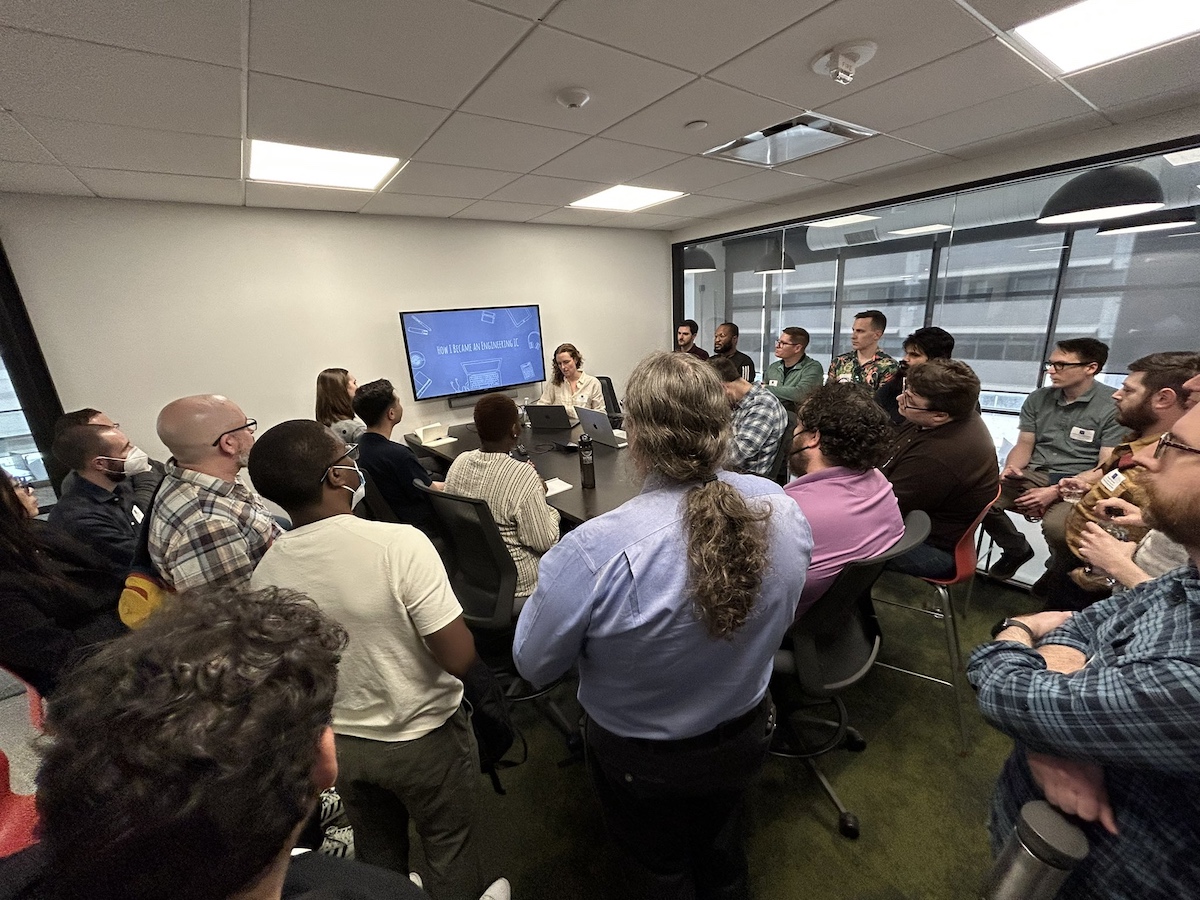It seems like there isn’t a straightforward answer to the question these days, even four years since COVID-19 hit (yes, really), with some tech events and meetup groups continuing to meet virtually and others returning to an in-person format.
The remote vs. in-person debate also impacts the working world, with some companies requiring employees to return to the office at least some of the week. On the other hand: Technical.ly has heard that several prominent growth-stage companies are downsizing or giving up on their once-flaunted downtown leases. (Look for more reporting on that trend soon.)
At a virtual meeting last month, we asked technologists named to the 2023 RealLIST Engineers list in Philadelphia and Pittsburgh about how they navigate this dichotomy, and what impact they feel it has on their local tech community.
The general consensus was that there are pros and cons to both formats and the answer might lie somewhere in the middle. (P.S. Here’s what these honorees had to say about how AI will change software engineers’ careers, too.)
Remote vs. IRL events’ impact on community
First, to set the stakes: The local tech community does exist, said Tom Boutell, CTO of Apostrophe Technologies. (We asked just to be sure.) It just looks different these days — and event organizers should keep in mind that members of the community have different circumstances and availability.
“One of the most inclusive things I think you can do is continue to offer remote events,” he said. “Of course, I recognize that some people benefit more from in-person events and that’s important, too, to try to have those at hours or on nights that are easier.”

Post-pandemic, it can feel harder to leave the house for in-person meetings and events — a phenomenon Jason Blanchard, engineering lead at Employee Cycle, called a “COVID hangover.”
Noah Lee, senior business data analyst at SEPTA, noticed a wave of events about a year ago because events that had been canceled or rescheduled were finally coming back and people were eager to connect again. He feels that momentum has started to slow down now.
“I’m still finding that balance of like, OK, how many events do I want to commit myself to a week or a month, and what kind of events and where does that balance lie,” Lee said. “I think a lot of people are still in that equilibrium finding phase.”
Before 2020, University of Pennsylvania IT Director Jeremy Gaten said he attended a lot of tech events found on Meetup.com, but now he mostly attends events connected to the Penn community. Similarly, in Pittsburgh, Toyz Electronics cofounder Wole Idowu noted that he mainly accesses the tech community and entrepreneurship events through Carnegie Mellon University, where he’s an alum.
Travis Southard, a software engineer at Brooksource, recommended the Philly Tech Calendar, a tool created by Philly JavaScript Club organizer (and 2023 RealLIST Connectors honoree) Joe Woods, as a good way to find out about more tech events in their city.
Remote vs. IRL in the workplace
The mindset about remote work has shifted, too, said Rebecca Stark, principal software engineer at Crossbeam. She used to think she would never go fully remote because she liked going into the office; now, she never works from the company’s Center City office.
“As someone who was very much not open to remote work because I liked that collaboration that you get in the office and the socialization and all of that stuff, it’s kind of interesting even just in myself to see that shift,” Stark said.
However, she noted, she does miss the in-person collaboration and bonding that comes with IRL work.

Remote work is also shifting job opportunities, Blanchard said, because any opportunity in any location is up for grabs if it’s fully remote. That means job seekers are competing against even more candidates.
“It’s not this hyperlocal, ‘I just need to stick out in my community’ [scenario]. Now, it’s like I need to stick out against anyone in the continental US that is reasonable to work in that time zone,” Blanchard said. “These things compound, there’s a lot of volume on the market, now you’re competing with everyone because everyone’s remote, and it creates a lot of noise.”
He’s hearing from peers that it takes a lot longer to find roles that are a good fit.
And yet: Apostrophe Technologies was already remote when the pandemic started, and its leaders thought they would hire people who lived anywhere, per Boutell. But they found that different time zones were a challenge and that proximity to clients matters.
There is also a lot of paperwork and overhead when it comes to hiring people in other states with stricter employment laws and it’s expensive to keep track of all those rules, he said.
Idowu agreed that there are a lot of moving parts when hiring people across states. He’s seen the challenges and benefits of being a fully remote company. Sometimes it’s helpful to have people in different time zones and contributing remotely, he said, but other times it doesn’t work as well.







